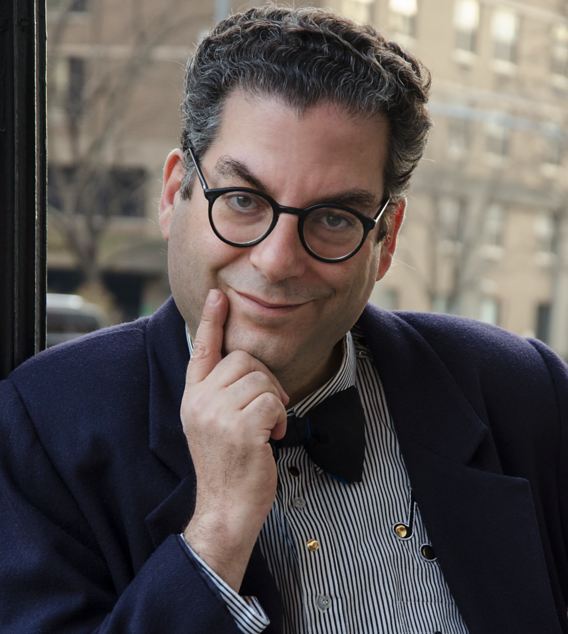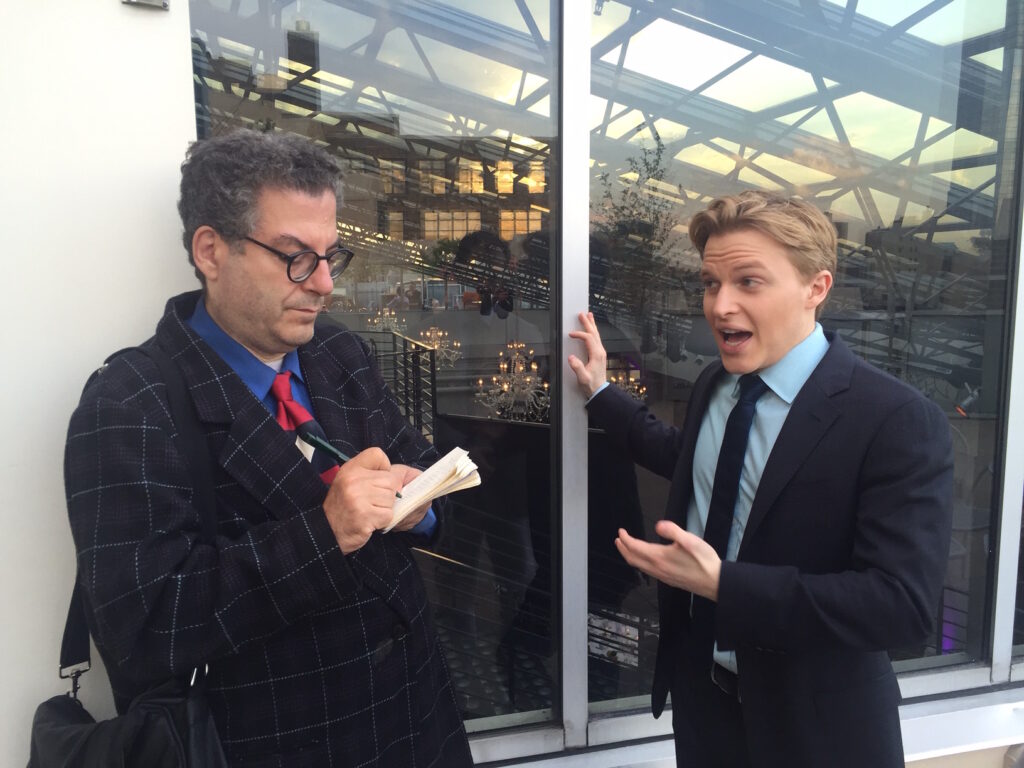Journalist Michael Musto has long been a prevalent presence in entertainment-related publications, as well as on websites, television shows and movies. He has a unique creative vision that puts him in a league of his own. I am so excited about this Q&A because Michael is an inspiration to me. Read on as he talks about his career and what has been the most rewarding part for him.
David:
You are legendary figure in nightlife, journalism, tv commentary and author. When you look back at your life, what has been the biggest struggle for you?
Michael:
The struggle was initially to find venues that let me fully be myself, but once I landed my column in the Village Voice in 1984, I’d found my home, a place that encouraged me to be free and liberated. Being openly gay did lead to some career setbacks here and there, but I don’t regret the fact that I stuck to my gay guns. It certainly beats pandering or living a lie.
David:
What have you noticed is different with nightlife in the 80’s as opposed to now?
Michael:
In the ’80s, there was no Internet and no cell phones, so people had to go out to socialize, hear new dance music, and connect. The downtown clubs were thriving and every night there was a Fellini-esque scene of bohemia run amok. Drag queens were still subversive, and they collided with performance artists, Yuppies, and Andy Warhol in large, clever clubs with big budgets. Today, Manhattan has become too expensive and forbidding to run a dance club in, so most of those have moved to Brooklyn and elsewhere. Today’s Manhattan bar scene has people watching Drag Race stars performing, in between looking at their phones, and I can’t say it has the excitement of the ’80s, but young people always love their first nightlife, so it’s perfectly enjoyable for them. And I drop my own concerns and have a good time too. There will always be colorful (and off-color) fun to be had.

David:
What has been the biggest disappointment in your career?
Michael:
A few of my peers have been jealous and backstabby, whereas they could have done better in their own careers if they’d been cooperative. But I must say, it’s mostly been a pretty great family, and my career hasn’t been littered with that many disappointments; I have worked steadily. I’ve gotten to write columns, feature stories and books and appear on TV–while meeting amazingly creative people in the arts–so I got to live all my childhood dreams, with lots of boxes checked on my bucket list.
David:
What has been your biggest reward in your career?
Michael:
The biggest reward is when someone tells me “I came to New York because of you. You made it sound so interesting” or “I came out because of you. Your column gave me a window into a world I never dreamed existed and which wasn’t covered in the mainstream media.” It’s very gratifying to feel you’ve impacted people and helped them find their place. One of my biggest fears was to go through life being invisible and living a meh, middlebrow life with no impact. I did everything to avoid the 9 to 5, suburban life, and it’s nice to know I succeeded in keeping my distance from the conventional and boring, and that got noticed.
David:
Given your celebrity status, is it hard for you to trust people when making new friends?
Michael:
As someone who writes about celebrities, you get some renown yourself (especially by going on TV), but it’s certainly not unmanageable. I’m hardly Harry Styles! Users might pop up here and there, but generally, the people I know are very successful in their own right. That being said, the best boyfriends I’ve had are ones that had no idea who I am. They actually like me, as opposed to just wanting someone to get them into clubs for free.

David:
If you could change one thing in the entertainment industry, what would it be?
Michael:
I would change the fearful way so many studios approach their content. For example, it took forever to get some positive gay content in movies because they’re always afraid of various bans and boycotts. But instead of cowering, these studios should be leading the way by educating the masses–and if they only make one billion instead of 1.1, then they can just deal with the horror.
David:
What advice do you have for people struggling to make it in the entertainment industry?
Michael:
My advice is to first of all, make sure you really have what it takes. Unless you have genuine talent, you’re not going to make it, so don’t try to fake it. If you do have it, then be sure you are aggressive, since no one’s going to knock on your door; you have to go out there and make a name for yourself. Also, be sure to be professional, deliver the goods, and be a team player. And when you start out, do as much work as you can get, just to get the experience and the exposure.
David:
If you could have a conversation with someone that has passed on, who would it be? And what would you say?
Michael:
I would love to talk to Ivana Trump–who used to come to my parties–and ask if she really fell.
David:
What would you like your legacy to be?
Michael:
I’d like to be remembered as someone honest, direct, fearless, professional and funny–that’s all, lol! And it wasn’t easy. The inscription on Bette Davis’s coffin says “She did it the hard way.” Well, the same can be said about me, because I’ve been openly gay, fought truth to power, and ruffled feathers. Damn, I’m fabulous!
David:
Thank you for your time. Do you have any words of wisdom to all the readers?
Michael:
Don’t ever think your life or your career is over. You’d be amazed at how many chapters you can get! I’m living proof. I’m currently still writing for the Village Voice, as well as for Queerty.com, and I still pop up on the tube and in documentaries.
Photo Credits: Michael Musto/Andrew Werner
